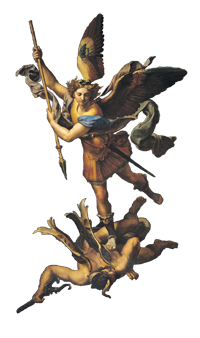Infinite Roads Diverging in a Yellow Wood

Three observations have been tumbling with the wind and rain in my mind, today.
The first involves some of the commentary related to the protest at the Rhode Island State House, yesterday, calling for the governor to reopen our economy. Specifically, I’m thinking of the comments of a political writer for Rhode Island Public Radio (now, The Public’s Radio), Scott MacKay, and podcaster Bill Bartholomew on the latter’s Facebook page.
MacKay — whose professional role presumably implies representing the public as a journalist — sneers at the protesters as “Covidiots.” Bartholomew concurs that they are “groupthinkers without a plan.” The post to which these comments are appended briefly expresses Bartholomew’s opinion as follows:
Pathetic display outside RI State House today. A miscellaneous rally, steeped in raw anger, attended by less than 100.
The exchange brings to mind a time I was invited to appear on RI Public Radio’s Political Roundtable show (which isn’t something that happens in the current reality). With the tape rolling, I mentioned that the station’s waiting area had the latest issue of The Nation (a liberal magazine), but National Review (a conservative magazine) was nowhere to be found. That is to say, “groupthink.” In an almost too-perfect response, the producers edited that comment out of the show that aired. And MacKay is the station’s greatest representative of the doctrinaire progressive unionist position.
As for Bartholomew, on one of the earlier episodes of his podcast, Bartholomewtown, the guest asked Bill if there was anybody he wouldn’t interview. The host didn’t seem to have considered the question before, but through his improvised answer, he seemed to want to insist that he’d talk to anybody while acknowledging that there was a line somewhere that he wouldn’t cross. I think the guest at that time was WPRO radio talk host Matt Allen, and to my knowledge he was the only conservative ever to appear on the show. (I can’t say for sure, because I stopped listening to the podcast when the episodes fell into the groove of progressive “amens.”)
My intention isn’t to say that either of these men is doing anything wrong (although the “Public’s Radio” displays an in-your-face pretension and even contempt when it doesn’t offset an employee like MacKay with somebody comparable on the other political side ). But when I read or listen to MacKay and Bartholomew, I hear groupthink. Often their commentary comes across to me as “raw anger,” based on “miscellaneous” ideological imperatives.
They’d surely disagree (at least Bill would), but this is my perception. We’re in different worlds.
A related observation, this week, came via another social medium, Twitter. A resident of Tiverton who isn’t fond of me went after the RI Tea Party tweeter, assuming it was me. This is a bit of a go-to assumption for him. He thinks he’s proven I tweet as the Gaspee Project, too, but I don’t.
These exchanges create something of a psychological experiment as, in his world, this guy thinks he’s interacting with me, when he’s really interacting with complete strangers.
The jarring part isn’t just the mistaken identity and the inappropriate response to a stranger. In like fashion, the same guy and his local political allies have built up an image of me in their own minds based on rumors and lies that they’ve told each other. They spread talk that is not only a difference of impression, but actually factually incorrect… the opposite of the truth. Thus, while their reactions might be justified, or at least excusable, in response to the person they think they’re addressing, that person doesn’t actually exist.
Again, we’re in different worlds.
A final observation of different worlds is, of course, fear of COVID-19. The disease appears to be pretty harmless to most people who catch it, and precautions can limit the likelihood of infection, even while out and about, yet the public response has put the worst possibility front and center. We hear that ten times as many people who catch it will die, versus the flu, yet that still means that a very small percentage of the people who catch it will die. Nonetheless, many are behaving as they would were they risking imminent death.
I don’t intend, here, to express an opinion on the hot debate of the day (to loosen or not to loosen), but only to note the different perspectives. A stroll in the woods feels very differently when you know those little black bugs aren’t just a hassle to pick off, but might give you Lyme disease.
And so, we live in different worlds, again. For some, the world is defined by dread of a disease. For others, the dread is of a collapsed economy and lost freedom. Some will experience an involuntary escalation of their anxiety when they hear about the possibility that the lockdown might soon end. Others have similar anxiety when the state’s governor promotes a poster with a socialist motif that puts chains around Rhode Island’s “hope.”
We live in different worlds. Literally. In a quantum physics kind of a way that ties with how we observe the world and understand it.
In early March, I encountered an article (that pointed to several podcasts) suggesting that brain activity just doesn’t seem capable of explaining abstract thinking. The writer, Mark Tapscott, thinks this is evidence of God’s reality, and I agree, but it takes a few (abstract) steps to get there, and as He always does, God leaves people an off-ramp to choose incorrectly, which is to say to choose to disbelieve in Him.
My belief about the brain is that it mainly processes and stores direct information observed in the world. Layer on to this direct information the chemical processes behind our emotions, which shouldn’t be understood separately from our “minds.” Emotions store and convey another layer of information, namely how we ought to interact with the world we’re observing.
A week or two after the panic had spread through our society in earnest, I saw an older couple at the grocery store, and their story was immediately clear. They had only one N95 mask between them and, for some reason, the man was wearing it. The woman was doing her best to keep a scarf over her face, but her emotions were easy to read. She was deeply agitated and her anxiety swelled whenever there was a delay in their progress. She wanted to get going and get out of there. The information her brain had collected was telling her that a deadly virus was floating around public places, and the same sources were, at that time, saying that only N95 masks could provide protection. Her emotions were supplying the information about how to react in such situations.
The next layer is abstract thought, which, I would suggest, has to do with our feel for the rules of reality. In a sense (perhaps in fact), we store this information in the world around us, probably as an intuitive calculation of the possibility of a particular future. The world in which I live is one in which this might happen. A world in which that is more likely than this is indeed a different world.
A deer that dashes from the sight of a human being is in a real sense living in a world in which that person is hunting. Another animal sees the white flash of the deer’s tail and understands the emotion and that the world is one in which to be scared and to run.
Even at higher levels of development, abstraction is to some degree only application of what we’ve seen before to what we are seeing right now, or what we can envision. We have seen birds fly, so we can imagine flight because the rules of reality do not foreclose flight. We have counted things, and so we can abstract the idea of numbers.
This brings us back to the idea that we really can live in different worlds. If your abstract ideas have to do with the rules of the universe, which you understand through what you have observed and how your body tells you to feel about it, then we can understand those rules differently. One whose observations have included a lesson in lift and drag would find it entirely plausible that we could fly, given the proper equipment.
Learning the mechanics of flight is, in fact, learning to live in a different universe. Learning to control an emotional response — whether to COVID-19 or to public speaking or to the smell of alcohol, for an alcoholic — is the same. Similarly, the most sure way to pass a lie-detector test (other than telling the truth, of course) is to believe the falsehood.
On first pass, this is not an encouraging thought for one who wishes to reduce the amount of human hostility in the world. People who have built professional identities around their opinions, like MacKay and Bartholomew (and me!), have emotional reason not to change their universe. Such people as my local antagonists have engaged in behavior that would be revealed as deplorable if they were to change their minds. Those on one side or the other of the coronavirus lockdown debate would have to take some ownership of the severe consequences of the reactions for which they advocated, usually based on limited information and too much emotion.
Yet, beneath the chains of our human nature, there is hope. If we live in a world where redemption is real, where human beings can transcend — can ascend — then people can be drawn toward a better universe. Those who long for that good reality must lead the way in making it seem possible.


